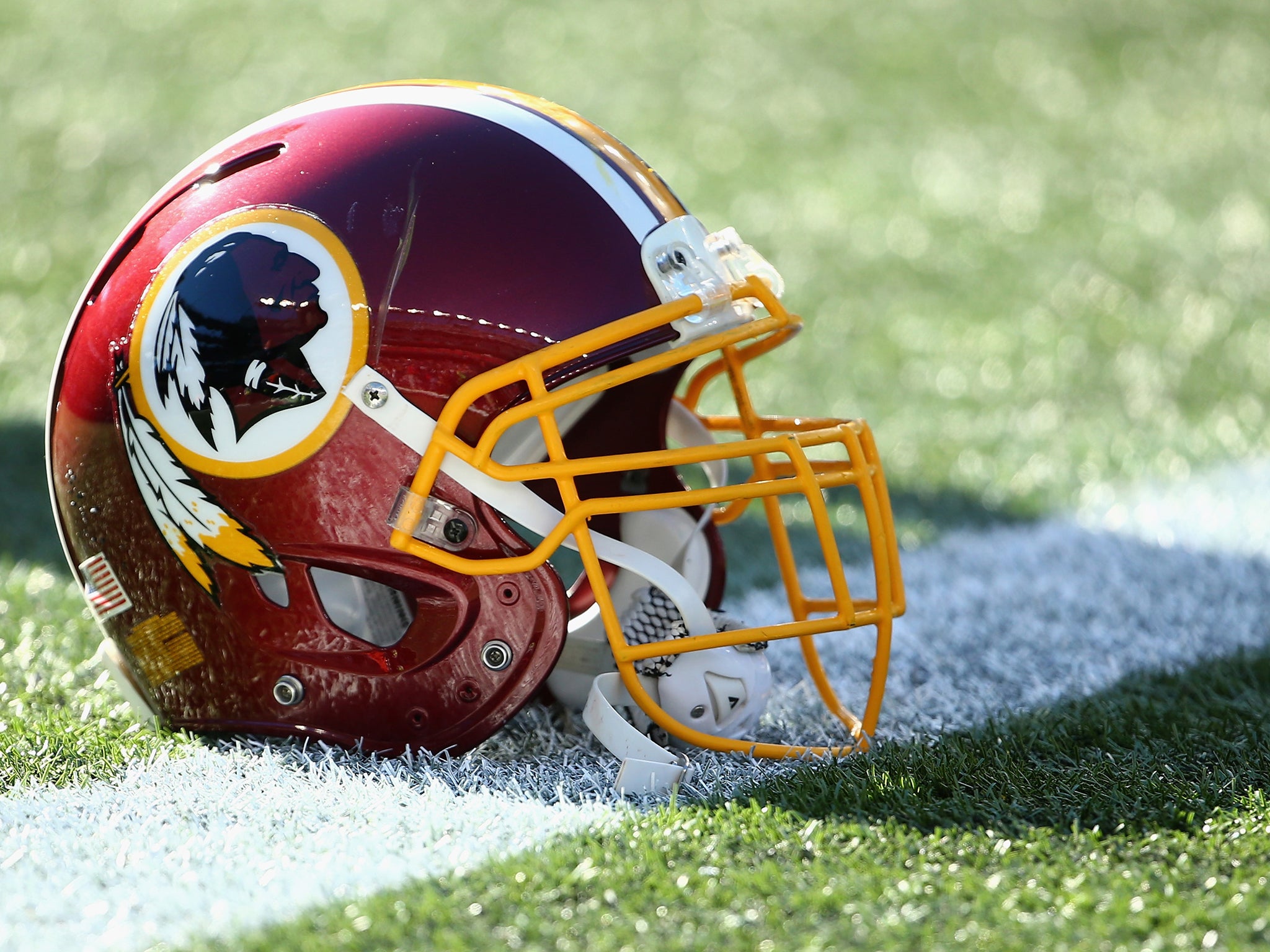Wembley Stadium will become the battle ground on which we assert Native American rights
What will Wembley Stadium do about playing host to a team whose very name and mascot is regarded as racist and derogatory?


Your support helps us to tell the story
From reproductive rights to climate change to Big Tech, The Independent is on the ground when the story is developing. Whether it's investigating the financials of Elon Musk's pro-Trump PAC or producing our latest documentary, 'The A Word', which shines a light on the American women fighting for reproductive rights, we know how important it is to parse out the facts from the messaging.
At such a critical moment in US history, we need reporters on the ground. Your donation allows us to keep sending journalists to speak to both sides of the story.
The Independent is trusted by Americans across the entire political spectrum. And unlike many other quality news outlets, we choose not to lock Americans out of our reporting and analysis with paywalls. We believe quality journalism should be available to everyone, paid for by those who can afford it.
Your support makes all the difference.At a football match in the Netherlands last week, the talented young Ajax and Dutch international footballer, Riechedly Bazoer, was subjected to racist chanting and monkey noises from the opposing team’s fans. This was only the latest example of how racism lives on in football – in every country. But including, of course, the UK.
In the stands (and, increasingly, on Twitter and Facebook) black and ethnic-minority footballers still receive racist abuse. At official club level, however, it is shunned. Premiership and Football League clubs and players, with the help of the anti‑racist Kick It Out organisation, have done their best to expunge this evil from the game.
But consider this for a moment: what if racial slurs existed not only among the marginalised and often anonymous chanting of some fans but in the very name of a Premiership football team? What if Arsene Wenger’s side were called the Arsenal N*****s, whose logo featured a stereotypical image of a black man? How could our national sport stomach this? The answer is, it wouldn’t. Yet to the Native American people, the name of the American football team the Washington Redskins – and I use this offensive term only in the context of explaining the issue – is on a par with the N-word.
Yesterday I met Ray Halbritter, the leader of the Oneida Indian Nation, a Native American tribe based in New York State, who told me the origins of the term “redskin”. I had assumed that it was a derogatory historical reference to skin colour, which would be bad enough, but Halbritter told me it refers to the scalps – red with blood – of Indians hunted for bounties in the 19th century.
A newspaper clipping from 1863 he showed me reads: “The State reward for dead Indians has been increased to $200 for every red-skin sent to Purgatory.” The R-word was shouted at Native Americans as they were dragged off their land. Modern dictionaries define it as a racial slur, while in 2014 the US Patent Office ruled that it is derogatory and cancelled the Washington NFL team’s trademark status.
Halbritter is among the senior Native American figures leading a campaign to get the football team to change its name. The “Change the Mascot” campaign so far has the backing of President Barack Obama, 50 members of the Senate, hundreds of Native American organisations and even the team’s own influential local newspaper, The Washington Post, has agreed not to use the name in print. The team, however, has resisted calls to change its name, while the NFL insists that the name honours Native Americans, saying it presents a “strong, positive and respectful image”.
This campaign has been under way in the US for more than two years, but Halbritter is in the UK because the controversy is about to hit Britain. On 30 October, the Washington team will play the Cincinnati Bengals at Wembley, and the match will be broadcast by the BBC. The fixture is likely to be a sell-out, with the NFL hopeful of attracting thousands of new young British fans to American football. With a rising British audience for the Super Bowl next month, the NFL is in talks for what could be a lucrative British franchise team within the next six years. It is abhorrent to think that children, new to American football in this country, will be cheering the name “Redskins” without understanding the horrors of its origins.
Wembley Stadium, as an organisation, has a list of rules and regulations which include the strict banning of “racial, homophobic or discriminatory abuse, chanting or harassment”, while it also observes the Football (Offences) Act 1991 which prohibits racial chanting in stadiums. Wembley also says it will confiscate flags that carry “offensive, discriminatory or inflammatory messaging”, which surely would include those brought to the game.
What’s more, Wembley has been at the forefront of anti-racism in sport in the UK; in 2012 it hosted the launch of an international anti-racism partnership between Fifa and Kick It Out. So what will it do about playing host to a team whose very name and mascot is regarded as racist and derogatory by the US President and the US courts?
Likewise, the BBC, as national broadcaster, has a responsibility to oppose racism and discrimination and, as it prepares to cover the Washington-Cincinnati game, must take a stand and refuse to use the name. The proud history of anti-racism in British sport must not be allowed to die on 30 October.
Join our commenting forum
Join thought-provoking conversations, follow other Independent readers and see their replies
Comments